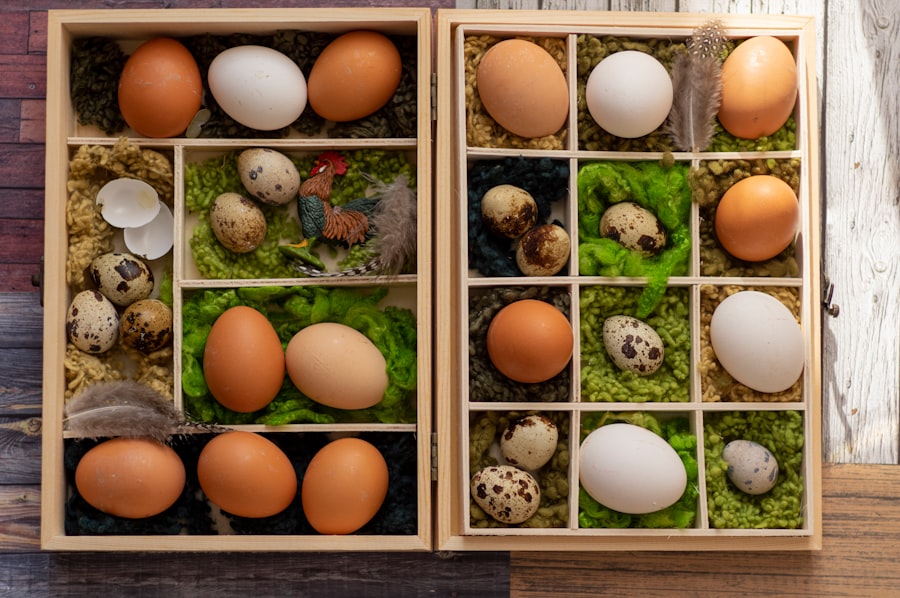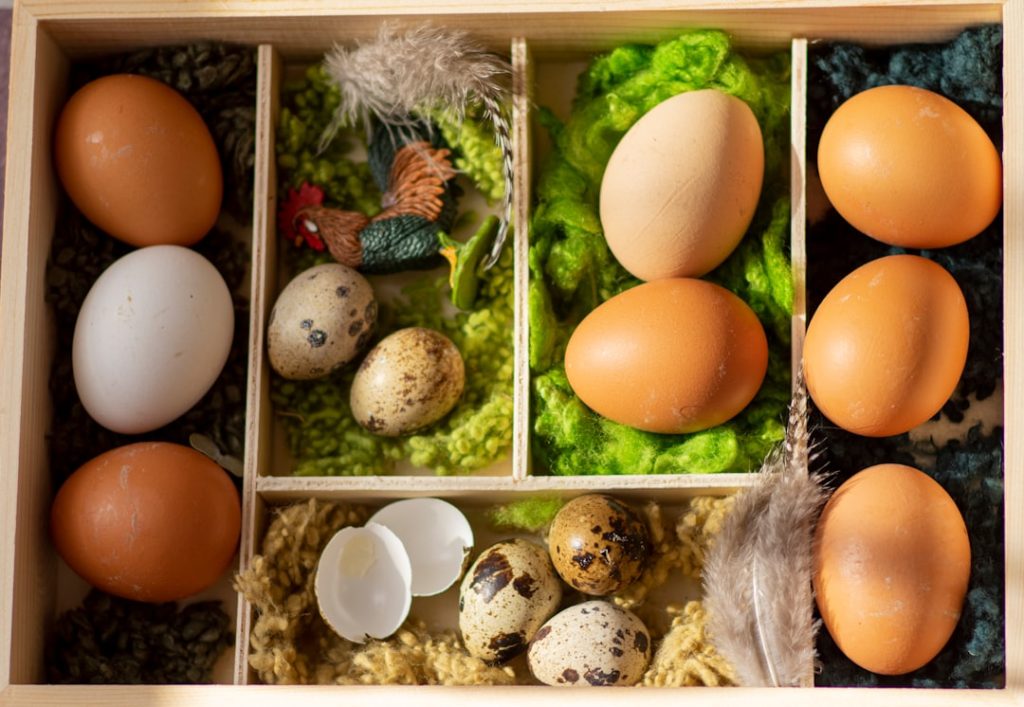Raising chickens as a hobby or for egg production requires an initial investment, but costs can vary depending on several factors. The primary expenses include purchasing the chickens, which can range in price based on breed and age. A suitable coop or housing is also necessary, with options ranging from simple DIY structures to pre-made designs.
Additional startup costs typically include feeders, waterers, bedding, and protective measures such as fencing or predator deterrents. However, resourceful individuals can reduce expenses through various means. Repurposing existing structures like old sheds or constructing coops from reclaimed materials can significantly lower housing costs.
Sourcing chickens from local breeders or through online classifieds may offer more affordable options, sometimes even for free. By carefully planning and budgeting, it is possible to minimize the initial costs of starting a chicken-raising venture. When considering chicken raising, it is essential to factor in these startup expenses and explore cost-saving alternatives to determine the most suitable approach for one’s budget and circumstances.
Table of Contents
- 1 Daily Expenses
- 2 Time Commitment
- 3 Health and Veterinary Costs
- 4 Egg Production
- 5 Quality of Eggs
- 6 Overall Financial Comparison
- 7 FAQs
- 7.1 What are the costs associated with keeping chickens?
- 7.2 What are the benefits of keeping chickens for eggs?
- 7.3 What are the potential drawbacks of keeping chickens for eggs?
- 7.4 How do the costs of keeping chickens compare to buying eggs from the store?
- 7.5 What are some factors to consider when deciding whether to keep chickens for eggs?
Key Takeaways
- Initial Costs:
- Initial costs for setting up a small chicken coop and purchasing chickens can range from 0 to 0.
- Additional costs may include feeders, waterers, and heat lamps.
- Daily Expenses:
- Daily expenses for chicken feed and bedding can range from to per month.
- Other potential expenses include supplements, treats, and occasional equipment maintenance.
- Time Commitment:
- Chickens require daily feeding, watering, and egg collection, which can take up to 30 minutes per day.
- Additional time may be needed for coop cleaning, maintenance, and monitoring for health issues.
- Health and Veterinary Costs:
- Veterinary costs for chickens can vary, but budgeting to 0 per year for vaccinations and check-ups is recommended.
- Additional costs may include medications, treatments for parasites, and emergency care.
- Egg Production:
- On average, a healthy hen can lay 4 to 6 eggs per week, depending on breed and age.
- Egg production may decrease during molting or in extreme weather conditions.
- Quality of Eggs:
- Freshly laid eggs from backyard chickens are often considered to be of higher quality, with richer flavor and firmer texture.
- The yolk color can be more vibrant due to a varied diet and access to natural foraging.
- Overall Financial Comparison:
- When factoring in initial costs, daily expenses, and health/veterinary costs, raising backyard chickens can be a cost-effective way to produce fresh eggs.
- However, it’s important to consider the time commitment and potential unexpected expenses when evaluating the overall financial impact.
Daily Expenses
Feed: The Biggest Expense
Once you have your chickens set up in their coop, the most significant ongoing daily expense to consider is feed. Chickens require a balanced diet to stay healthy and produce eggs, so investing in quality feed is essential.
Other Essential Expenses
In addition to feed, you’ll need to budget for bedding, such as straw or wood shavings, as well as regular cleaning supplies for the coop. It’s also important to consider the cost of water for the chickens, as they require a constant supply of fresh, clean water.
Ways to Minimize Daily Expenses
However, there are ways to minimize daily expenses when raising chickens. For example, you can save money on feed by purchasing in bulk or by growing your own chicken feed if you have the space and resources. Additionally, you can use natural bedding materials such as leaves or grass clippings to save on bedding costs.
Time Commitment

Raising chickens requires a significant time commitment, especially when it comes to daily care and maintenance. Chickens need to be fed and watered daily, and their coop needs to be cleaned regularly to ensure a healthy living environment. Additionally, chickens require attention and care to monitor their health and well-being.
Depending on the size of your flock and the complexity of your setup, the time commitment can vary. On the other hand, raising chickens can also be a relatively low-maintenance endeavor if you have a small flock and a well-designed coop. With proper planning and organization, it is possible to streamline daily chores and make the most of your time spent caring for your chickens.
Additionally, many chicken-raising tasks can be enjoyable and even therapeutic, such as collecting eggs or spending time with your flock. By finding a balance and establishing efficient routines, it is possible to manage the time commitment of raising chickens effectively.
Health and Veterinary Costs
Just like any other pet or livestock, chickens require regular health care and veterinary attention. This can include vaccinations, deworming, and treatment for common ailments such as mites or respiratory infections. Additionally, there may be unexpected veterinary costs if a chicken becomes ill or injured.
It’s important to budget for these potential health and veterinary costs when considering raising chickens. However, there are steps you can take to minimize health and veterinary costs when raising chickens. For example, practicing good biosecurity measures can help prevent the spread of disease within your flock.
Additionally, providing a clean and well-maintained living environment for your chickens can help reduce the risk of health issues. By being proactive about the health of your flock and staying informed about common chicken ailments, it is possible to minimize the potential veterinary costs associated with raising chickens.
Egg Production
One of the main reasons people raise chickens is for their egg production. Depending on the breed and age of the hens, as well as their living conditions and diet, egg production can vary. Some breeds are known for their prolific egg-laying abilities, while others may lay fewer eggs but of higher quality.
It’s important to consider these factors when planning for egg production from your flock. On the other hand, with proper care and management, it is possible to maximize egg production from your flock. Providing a balanced diet, a clean living environment, and regular access to fresh water can help ensure that your hens are healthy and productive layers.
Additionally, choosing breeds known for their egg-laying abilities can help maximize egg production from your flock. By being attentive to the needs of your hens and providing them with optimal conditions, it is possible to achieve consistent and reliable egg production.
Quality of Eggs

Factors Affecting Egg Quality
In addition to quantity, the quality of the eggs produced by your flock is an important consideration. Factors such as diet, living conditions, and breed can all impact the quality of the eggs produced. High-quality eggs are not only more enjoyable to eat but also more valuable if you plan to sell them or share them with others.
Prioritizing Egg Quality
It’s important to prioritize the quality of eggs when raising chickens. On the other hand, with proper care and attention to detail, it is possible to ensure high-quality eggs from your flock. Providing a balanced diet rich in nutrients such as calcium and omega-3 fatty acids can help improve the nutritional quality of the eggs produced.
Optimizing Living Conditions
Additionally, maintaining a clean living environment and minimizing stress for your hens can help ensure that the eggs they lay are of the highest quality. By prioritizing the health and well-being of your flock, it is possible to produce eggs that are not only abundant but also nutritious and delicious.
Overall Financial Comparison
When considering the financial aspects of raising chickens, it’s important to weigh the initial costs, daily expenses, and potential income from egg production. While there are upfront costs involved in setting up a chicken-raising venture, there are also opportunities to save money through resourcefulness and DIY solutions. Additionally, by being mindful of daily expenses and finding ways to minimize costs, it is possible to keep ongoing expenses manageable.
In terms of potential income, egg production can be a valuable return on investment when raising chickens. By maximizing egg production through proper care and management of your flock, you can enjoy a steady supply of high-quality eggs for personal consumption or for sale. When considering the overall financial comparison of raising chickens, it’s important to take into account both the costs and potential income associated with this endeavor.
With careful planning and attention to detail, raising chickens can be a rewarding and cost-effective venture that provides both enjoyment and financial benefits.
If you’re considering keeping chickens for their eggs, you may also be interested in learning about the cost of keeping guinea fowl alongside chickens. According to a recent article on PoultryWizard, guinea fowl can be a great addition to a chicken flock as they help control pests and provide additional eggs. This could be a valuable consideration when weighing the cost of keeping chickens versus buying eggs.
FAQs
What are the costs associated with keeping chickens?
The costs of keeping chickens include initial setup (coop, feeders, waterers), ongoing expenses for feed, bedding, and healthcare, as well as potential costs for permits and licenses.
What are the benefits of keeping chickens for eggs?
Keeping chickens for eggs can provide a sustainable source of fresh, high-quality eggs, as well as the opportunity to engage in a rewarding hobby and potentially save money on store-bought eggs.
What are the potential drawbacks of keeping chickens for eggs?
The potential drawbacks of keeping chickens for eggs include the initial investment in setup, ongoing time and effort required for care and maintenance, as well as the possibility of unexpected costs for healthcare or infrastructure repairs.
How do the costs of keeping chickens compare to buying eggs from the store?
The costs of keeping chickens for eggs can vary depending on factors such as the size of the flock, the quality of feed and housing, and the local cost of living. In some cases, keeping chickens may be more cost-effective than buying eggs from the store, while in other cases, it may be more expensive.
What are some factors to consider when deciding whether to keep chickens for eggs?
Factors to consider when deciding whether to keep chickens for eggs include the initial setup costs, ongoing expenses, time and effort required for care, local regulations and restrictions, as well as the potential benefits of having a sustainable source of fresh eggs.
Meet Walter, the feathered-friend fanatic of Florida! Nestled in the sunshine state, Walter struts through life with his feathered companions, clucking his way to happiness. With a coop that’s fancier than a five-star hotel, he’s the Don Juan of the chicken world. When he’s not teaching his hens to do the cha-cha, you’ll find him in a heated debate with his prized rooster, Sir Clucks-a-Lot. Walter’s poultry passion is no yolk; he’s the sunny-side-up guy you never knew you needed in your flock of friends!







